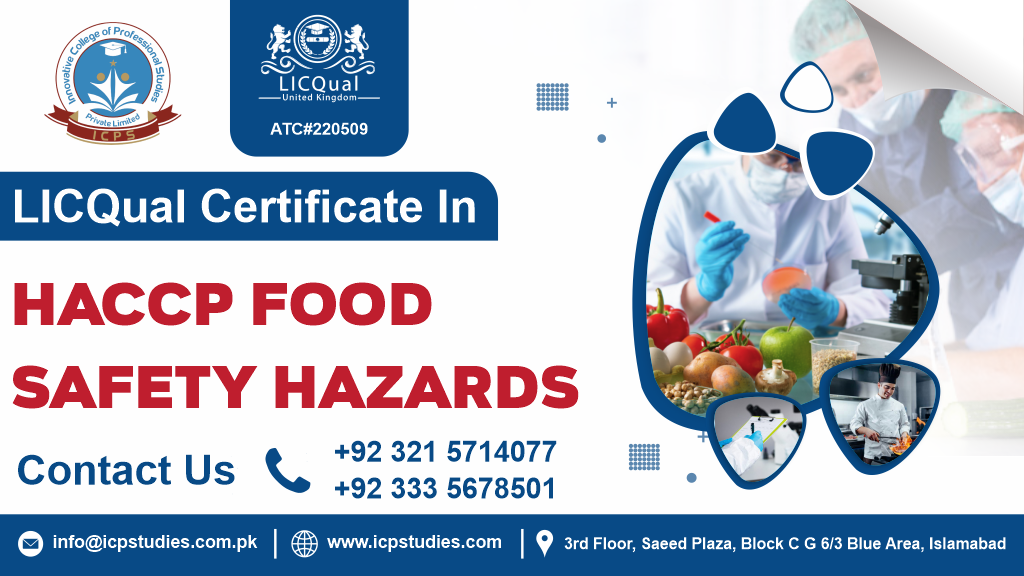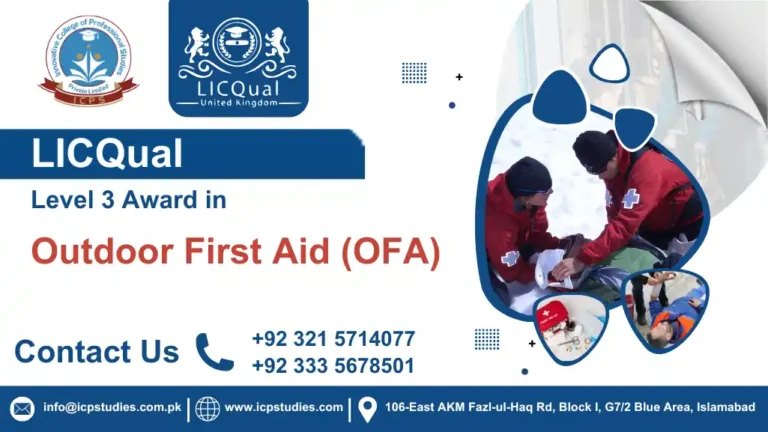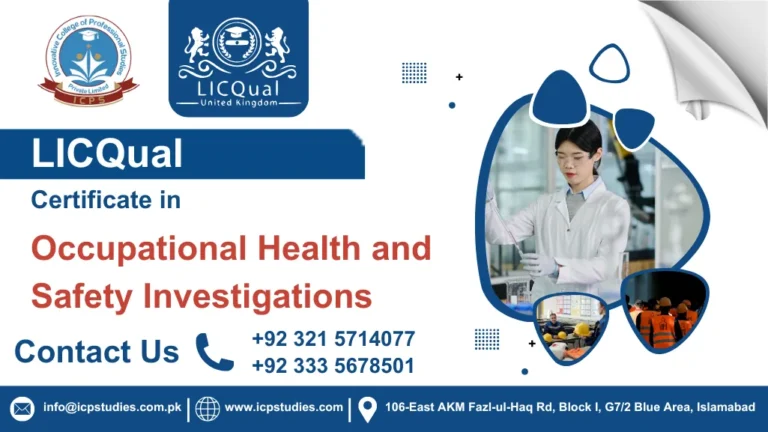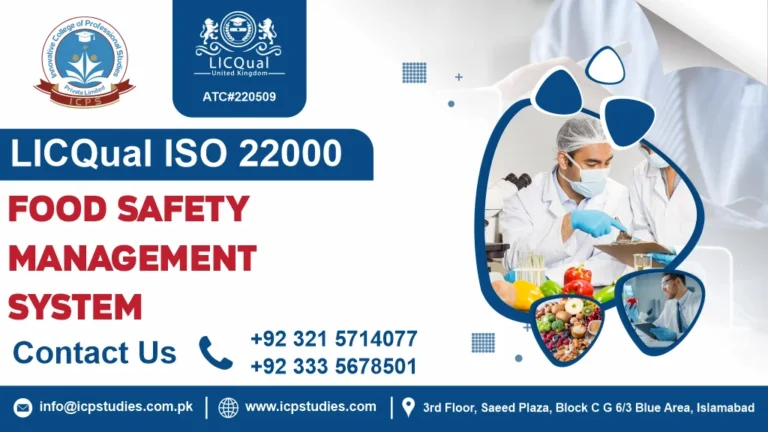In today’s global food industry, ensuring the safety and quality of food products is more critical than ever. The Hazard Analysis and Critical Control Points (HACCP) system is a pivotal framework used worldwide to manage food safety hazards. A Certificate in HACCP Food Safety Hazards equips professionals with the knowledge and skills needed to identify, evaluate, and control these hazards, safeguarding public health and enhancing consumer confidence.
HACCP is an internationally recognized system for reducing the risk of safety hazards in food. The system, originally developed by NASA in collaboration with Pillsbury to ensure the safety of astronaut food, has become the gold standard for food safety management globally. HACCP focuses on preventing hazards that could cause foodborne illnesses by applying science-based controls from raw material production to consumption.
A Certificate in HACCP Food Safety Hazards is a valuable credential for anyone dedicated to ensuring food safety. It not only provides the knowledge and skills necessary to implement effective food safety management systems but also opens doors to new career opportunities. By obtaining this certification, you can play a crucial role in protecting public health and maintaining the highest standards of food safety in your organization. Whether you are a seasoned professional or new to the food industry, investing in HACCP certification is a smart move toward a safer and more successful career.
All About Certificate in HACCP Food Safety Hazards
Course Overview
A Certificate in HACCP Food Safety Hazards is a professional credential that signifies an individual’s comprehensive understanding and expertise in the Hazard Analysis and Critical Control Points (HACCP) system, specifically focused on identifying, evaluating, and controlling food safety hazards. This certification is essential for ensuring the safety and quality of food products throughout the food supply chain.
A Certificate in HACCP Food Safety Hazards is a valuable credential for professionals dedicated to ensuring the safety and quality of food products. It signifies a thorough understanding of the HACCP system and its application in real-world scenarios. By obtaining this certification, individuals can play a crucial role in protecting public health, enhancing consumer confidence, and advancing their careers in the food industry.
Study Units
- Introduction to HACCP Principles
- Identifying Food Safety Hazards
- Critical Control Points (CCPs) and Control Measures
- Developing HACCP Plans
- HACCP Implementation and Monitoring
- Verification and Maintenance of HACCP Systems
- Practical Case Studies and Real-world Applications
Entry Requirements
- Age Requirement: Candidates should be at least 16 years old.
- Professional Background: Relevant experience in the food industry or related sectors is preferred but not mandatory.
- Educational Qualifications: There are generally no formal educational prerequisites, making the course accessible to individuals with varied backgrounds.
- Basic Knowledge of Food Safety: Familiarity with basic food safety concepts and practices is beneficial.
- Communication Skills: Strong verbal and written communication skills are necessary for understanding course material and engaging in discussions.
- Interest in Food Safety: A genuine interest in learning about food safety hazards and HACCP principles is important.
- Basic IT Skills: Familiarity with using IT tools for documentation may be helpful but is not mandatory.
These requirements may vary by training provider, so it’s advisable to check with the specific institution offering the Certificate in HACCP Food Safety Hazards for their exact criteria.
4o mini
The Certificate in HACCP Food Safety Hazards is designed for:
- Food Industry Professionals: Individuals working in food production, processing, or distribution who need a deeper understanding of food safety hazards.
- Quality Assurance Personnel: Staff responsible for maintaining food safety standards and compliance within organizations.
- Supervisors and Managers: Leaders overseeing food operations who need knowledge of HACCP principles to ensure safe practices.
- Food Safety Inspectors: Professionals involved in assessing and auditing food safety practices in various establishments.
- Catering and Hospitality Staff: Employees in restaurants, catering services, and hotels who handle food and need to understand potential hazards.
- Regulatory Compliance Officers: Individuals ensuring that their organizations comply with food safety regulations.
- New Employees in Food-Related Roles: Those entering the food industry who require a solid understanding of HACCP and food safety hazards.
- Anyone Interested in Food Safety: Individuals looking to enhance their knowledge of food safety management and hazard analysis.
This course is ideal for anyone seeking to gain a comprehensive understanding of food safety hazards and the principles of HACCP to improve food safety practices in their organization.
Learning Outcomes
The Certificate in HACCP Food Safety Hazards is designed for a wide range of professionals and students in the food industry who are dedicated to ensuring food safety and quality. This course is particularly beneficial for:
Quality Assurance Managers
- Role: Oversee the quality and safety of food products throughout the production process.
- Benefits: Enhance your ability to develop, implement, and manage HACCP systems, ensuring compliance with food safety regulations and standards.
Food Safety Auditors
- Role: Conduct audits to ensure food production facilities adhere to safety standards and regulations.
- Benefits: Gain in-depth knowledge of HACCP principles and practices, enabling you to perform more thorough and effective audits.
Production Supervisors
- Role: Manage daily operations in food production environments, ensuring processes run smoothly and safely.
- Benefits: Equip yourself with the skills to identify and control potential hazards, ensuring the safety and quality of food products.
Food Service Managers
- Role: Oversee the operation of food service establishments, including restaurants, cafeterias, and catering services.
- Benefits: Learn how to implement and monitor HACCP plans in food service settings, improving overall food safety and customer satisfaction.
Regulatory Affairs Specialists
- Role: Ensure that food products comply with all relevant laws and regulations.
- Benefits: Develop a comprehensive understanding of HACCP systems, aiding in the development of policies and procedures that meet regulatory requirements.
Food Scientists and Technologists
- Role: Research and develop new food products and processes, focusing on safety, quality, and efficiency.
- Benefits: Enhance your ability to design safe food production processes and contribute to the development of innovative, safe food products.
Food Production Workers
- Role: Work directly in the food production process, handling, processing, and packaging food products.
- Benefits: Gain valuable knowledge and skills to recognize and address potential food safety hazards in your daily work.
Students and Recent Graduates
- Role: Individuals studying or recently graduated in food science, microbiology, nutrition, or related fields.
- Benefits: Strengthen your resume with a specialized certification, improving your employment prospects in the food industry.
Small Business Owners
- Role: Owners of small food businesses such as bakeries, cafes, and local food producers.
- Benefits: Learn how to implement effective food safety management systems, ensuring the safety and quality of your products and protecting your business from potential hazards.
Health Inspectors and Public Health Officials
- Role: Inspect food establishments and enforce health and safety regulations.
- Benefits: Acquire a deeper understanding of HACCP systems, enhancing your ability to assess compliance and recommend improvements.
Conclusion
The Certificate in HACCP Food Safety Hazards is ideal for anyone involved in the food industry who is committed to ensuring the highest standards of food safety. Whether you are a seasoned professional looking to deepen your expertise or a newcomer seeking to build a foundation in food safety management, this course provides the essential knowledge and skills to excel in your role and contribute to safer food production practices.
FAQs about Certificate in HACCP Food Safety Hazards







